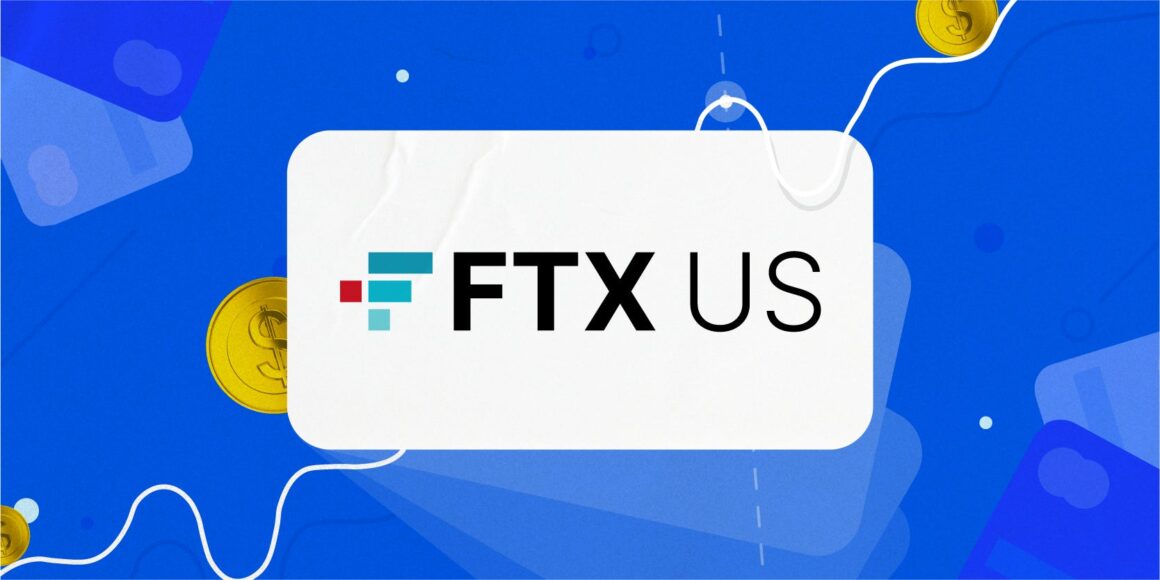FTX.US; Rachel Mendelson/Insider
Personal Finance Insider writes about products, strategies, and tips to help you make smart decisions with your money. We may receive a small commission from our partners, like American Express, but our reporting and recommendations are always independent and objective. Terms apply to offers listed on this page. Read our editorial standards.
Overall rating
| Feature | Insider rating (out of 5) |
| Fees | 4.75 |
| Investment selection | 4.50 |
| Platform navigability | 4.50 |
| Customer service | 3.50 |
| Trustworthiness | 1.00 |
| Educational resources/research | 4.00 |
| Overall score | 3.71 |
Is FTX.US right for you?
 FTX.US |
|
| Editor's rating | 3.71 out of 5 |
| Fees | Crypto transactions: 0.00-0.10% maker fees, 0.05-0.40% taker fees; NFTs: $1 to mint/create, 2% to buy or sell |
| Account Minimum | $0 |
| Promotion | Get a free coin for every trade over $10. |
| FTX.US | |
Functioning as the US division of the larger international FTX crypto derivatives exchange, FTX.US offers cryptocurrency trading, NFTs, derivatives, payment services, and much more. The exchange was founded in 2020.
If you prefer the mobile route, you can also access FTX.US on iOS and Android devices.
| FTX.US pros | FTX.US cons |
|
|
Not sure if FTX.US is right for you? Keep reading to see how it fares against similar investment platforms.
How does FTX.US compare?
 FTX.US |
 Binance (Logo Wine) |
 Coinbase |
|
Min. Investment $0 |
Min. Investment $0 |
Min. Investment $2 |
|
Fees Crypto transactions: 0.00-0.10% maker fees, 0.05-0.40% taker fees; NFTs: $1 to mint/create, 2% to buy or sell |
Fees 0.1% standard trading fee, 0.02%/0.04% maker/taker futures fees |
Fees 0.50% spread for buy/sell transactions; transaction fee from $0.99 to $2.99; up to 0.50% for Coinbase Pro |
|
Investment choices Cryptocurrencies, NFTs, derivatives |
Investment choices Cryptocurrencies, NFTs, derivatives |
Investment choices Cryptocurrencies |
| FTX.US | Binance | Coinbase |
FTX, Binance, and Coinbase all offer a vast range of cryptocurrency products and services for traders both in the US and abroad. Though Coinbase is launching NFT trading and plans to eventually offer derivatives, FTX.US and Binance are better options for those who also want access to things like NFTs and crypto derivatives.
Coinbase, however, is a better platform for cryptocurrency newcomers or beginners who want an easily navigable platform and access to products like Coinbase Earn, a service that pays you in crypto for watching educational videos about different assets.
Keep reading to see how FTX.US works.
Ways to invest with FTX.US
Cryptocurrencies
FTX.US offers more than 20 cryptocurrencies, with additional products and account options like NFT trading, over-the-counter (OTC) trading, derivatives, margin trading (this allows you to borrow money to buy more crypto), FTX Pay, and more.
On the crypto end, you can get started without having to worry about an account minimum requirement. But you'll be responsible for maker or taker fees (more on those below), depending on how your orders are executed. Maker fees apply to orders that aren't immediately marketable since there aren't any matching orders. Taker fees, however, are for orders that instantly match with other orders. Maker fees for FTX.US range from 0.00-0.10%, and taker fees range from 0.05-0.40%.
You can also use the exchange's payment processor, FTX Pay, to receive payments in crypto and fiat currencies. Plus, the FTX card lets you use your FTX.US balance to buy goods from merchants across the globe.
And like many investment platforms, you can trade wherever you are, and at any time, with its mobile apps.
NFTs
FTX.US NFT offering also sets it apart from other crypto exchanges that mainly offer coin trading. For creators, you can list NFTs through ethereum or solana. And if you're looking to purchase NFTs, FTX.US gives you several collections to choose from. See more on its offerings here.
Fees
FTX.US also charges additional fees for wire and ACH transfers.
When it comes to wire transfers, you're allowed one withdrawal per week (this is a rolling week period) if you're taking out less than $5,000. The exchange charges an extra $30 per withdrawal if you make additional withdrawals below $5,000 in a week. All withdrawals above $5,000, however, are free of fees.
FTX.US charges $0.50 for ACH transfers, but you can skip out on this fee if you meet any of the following criteria:
- It's your first ACH deposit with FTX.US
- Your deposit is greater than $100
- The deposit is over $10
You can find more information on FTX.US' fees — including those for margin trading — here.
Is FTX.US trustworthy?
The Better Business Bureau (BBB) gives FTX.US an F rating. While the crypto exchange isn't BBB accredited (and the bureau doesn't use its customer reviews to calculate its rating), its rating is a result of the bureau's take on the business' level of interaction with its customers.
The bureau attributes its F rating to three things: (1) FTX.US has four complaints filed against it, (2) the exchange failed to respond to those complaints and (3) its length of time in business also contributes to the rating.
In 2019, a California-based US district court dismissed a $150 million lawsuit against FTX that accused the exchange of market manipulation, racketeering, and more. Jack in the Box also recently sued FTX, claiming it stole its mascot, but the two parties reached an undisclosed settlement.
FTX US has closed three complaints in the last 12 months.
